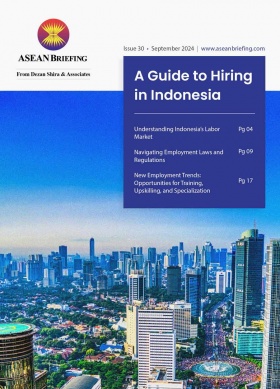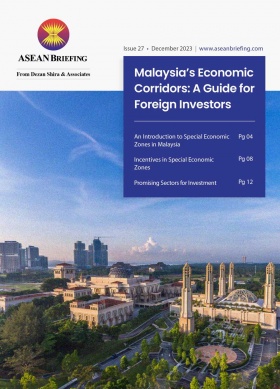India-Malaysia Bilateral Trade Relations
We look at bilateral trade relations between India and Malaysia in FY 2023-24, focusing on key exports, imports, and strategic partnerships.
India and Malaysia have cultivated a dynamic and growing trade relationship, driven by strategic economic partnerships and mutual interests.
As two key players in the South and Southeast Asian regions, their trade ties have been strengthened by agreements like the Malaysia-India Comprehensive Economic Cooperation Agreement (MICECA), which has significantly boosted bilateral trade and investment.
With both countries celebrating over six decades of diplomatic relations, the trade partnership continues to expand, offering new opportunities in sectors such as manufacturing, technology, and services, while contributing to the economic growth of both nations.
Bilateral trade
India and Malaysia’s economic and commercial ties have become a key component of their Enhanced Strategic Partnership, with bilateral trade reaching US$ 20.01 billion in FY 2023-24. Malaysia is India’s 16th largest trading partner, while India ranks among Malaysia’s top 10. Malaysia is also India’s 3rd largest trading partner in ASEAN.
In 2022, India exported US$7.27 billion to Malaysia, with exports growing at an annual rate of 4.36 percent over the past five years. Malaysia exported US$13.1 billion to India, with Malaysian exports growing at an annual rate of 9.14 percent from 2017 to 2022.
In June 2024, India exported US$765 million to Malaysia and imported US$1.23 billion. India’s exports to Malaysia increased significantly by 93.9 percent compared to June 2023, while imports grew by 14.5 percent.
Key Indian exports included aluminum products (US$161 million), petroleum products (US$67.6 million), and electric machinery (US$48.6 million). India’s top imports from Malaysia were vegetable oils (US$196 million), crude petroleum (US$79 million), and organic chemicals (US$43.3 million). The sharp rise in India’s exports was mainly driven by increases in aluminum products (up US$139 million), electric machinery (up US$40.1 million), and zinc products (up US$12.4 million). Import growth was fueled by telecom instruments (up US$14.4 million), plastic raw materials, and iron and steel.
|
India Exports to Malaysia |
|
|
Items |
Value (US$) |
|
Mineral fuels, oils, distillation products |
1.42 billion |
|
Aluminum |
1.08 billion |
|
Metal and edible meat offal |
532.57 million |
|
Machinery, nuclear reactors, boilers |
441.77 million |
|
Organic chemicals |
321.58 million |
|
India Imports from Malaysia |
|
|
Items |
Value (US$) |
|
Animal, and vegetable fats and oils, cleavage products |
2.77 billion |
|
Electrical, electronic equipment |
2.32 billion |
|
Mineral fuels, oils, distillation products |
2.22 billion |
|
Machinery, nuclear reactors, boilers |
902.37 million |
|
Organic chemicals |
538.99 million |
DTAA
The India-Malaysia Double Tax Avoidance Agreement (DTAA), revised in 2012, addresses double taxation issues to promote cross-border trade and investment. It provides tax clarity for individuals and businesses engaged in international activities by defining tax rates, and responsibilities, and reducing the chances of being taxed twice. It applies to income tax in India and income and petroleum taxes in Malaysia.
The DTAA covers various taxes, such as income tax and petroleum income tax, and applies to different income types, including dividends (5 percent tax), interest, royalties, and fees for technical services (each taxed at 10 percent). Key provisions include defining residency, taxing income from immovable property in the state where the property is located, and taxing business profits only in the state where the business operates unless there is a permanent establishment in the other state.
The taxes covered under the India-Malaysia DTAA are crucial for individuals and businesses operating in both countries. The agreement specifically applies to the following taxes:
In India:
- Income Tax
- Surcharge on Income Tax
In Malaysia:
- Income Tax
- Petroleum Income Tax
These taxes ensure that income-generating activities between India and Malaysia are subject to the DTAA. However, certain local taxes or levies may not be included under this agreement.
The agreement includes provisions for employment income, directors’ fees, entertainers’ income, and government service earnings, specifying the applicable country for taxation.
The DTAA also facilitates the resolution of tax disputes and promotes the exchange of tax-related information between both countries.
Overall, the DTAA enhances bilateral economic relations by encouraging investments, reducing tax evasion, and providing a clearer taxation framework for businesses and individuals in both countries.
Conclusion
With mutual benefits from strategic partnerships, both nations have seen increasing trade volumes across various sectors, including defense, agriculture, technology, and energy.
To further bolster bilateral trade, India and Malaysia can focus on diversifying their trade portfolios, enhancing technological collaborations, and promoting sustainable investments. Strengthening digital trade, e-commerce, and innovation partnerships will be crucial for staying competitive in the global economy.
About Us
ASEAN Briefing is one of five regional publications under the Asia Briefing brand. It is supported by Dezan Shira & Associates, a pan-Asia, multi-disciplinary professional services firm that assists foreign investors throughout Asia, including through offices in Jakarta, Indonesia; Singapore; Hanoi, Ho Chi Minh City, and Da Nang in Vietnam; besides our practices in China, Hong Kong SAR, India, Italy, Germany, and USA. We also have partner firms in Malaysia, Bangladesh, the Philippines, Thailand, and Australia.
Please contact us at asean@dezshira.com or visit our website at www.dezshira.com and for a complimentary subscription to ASEAN Briefing’s content products, please click here.







